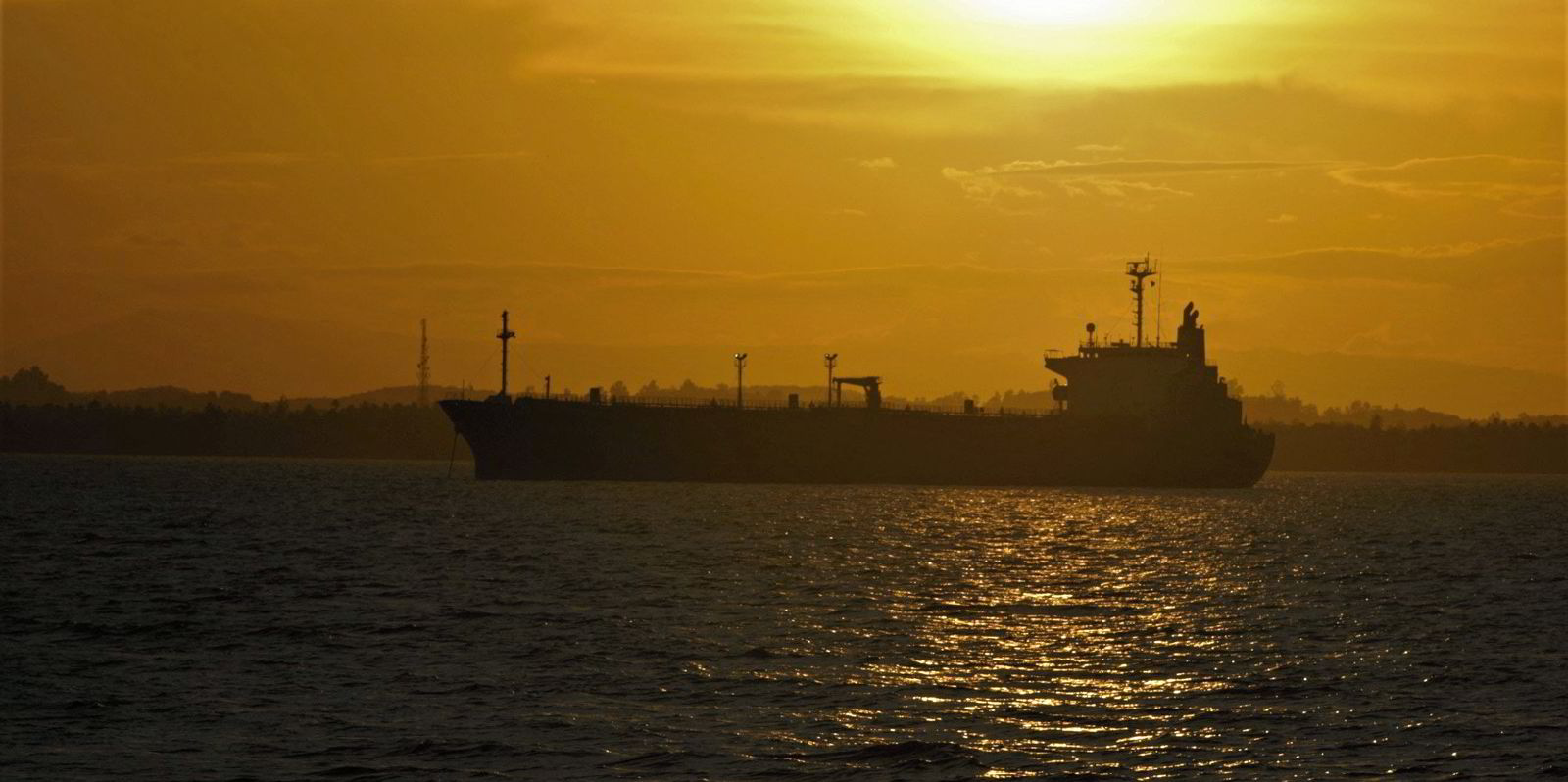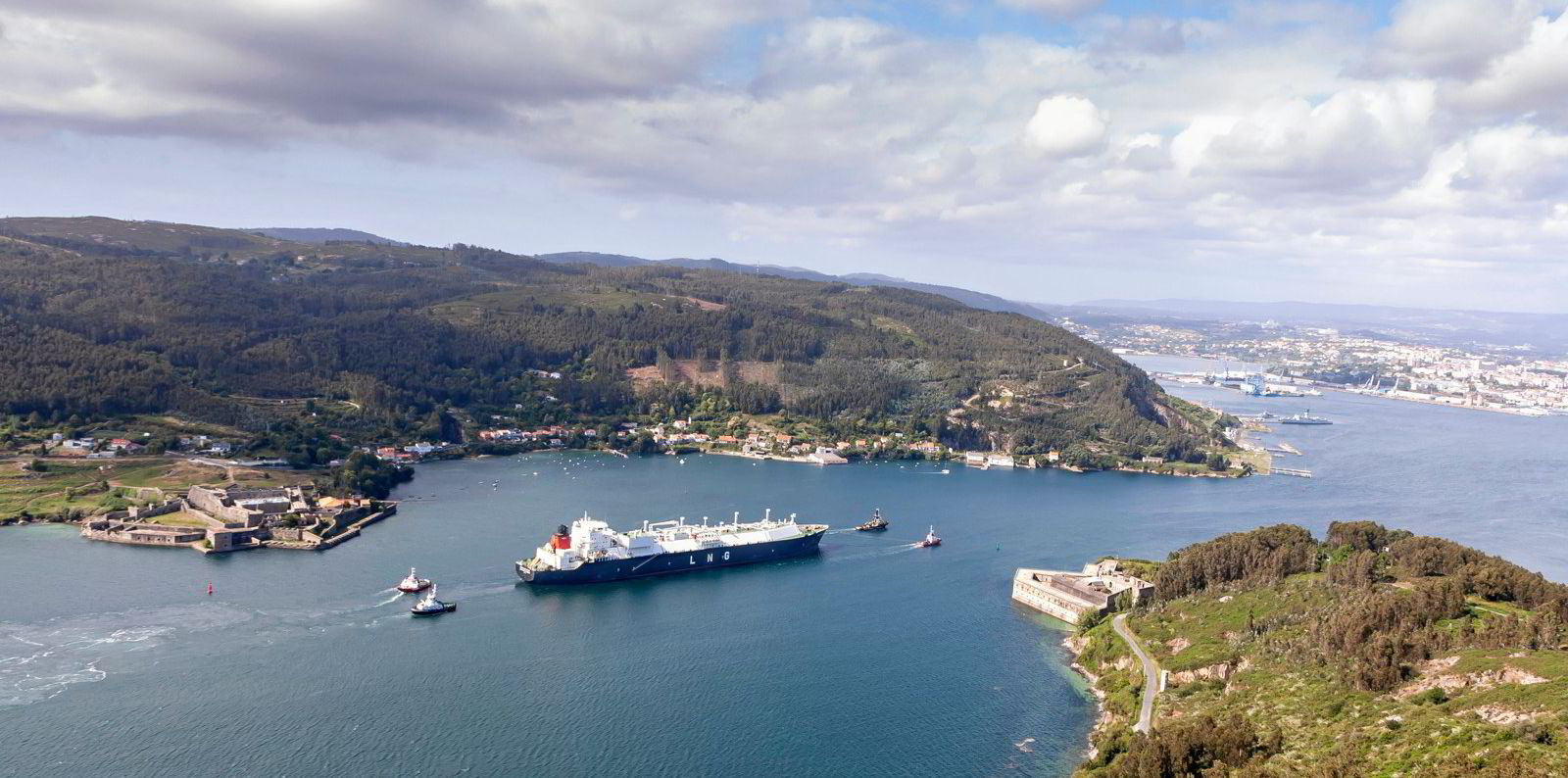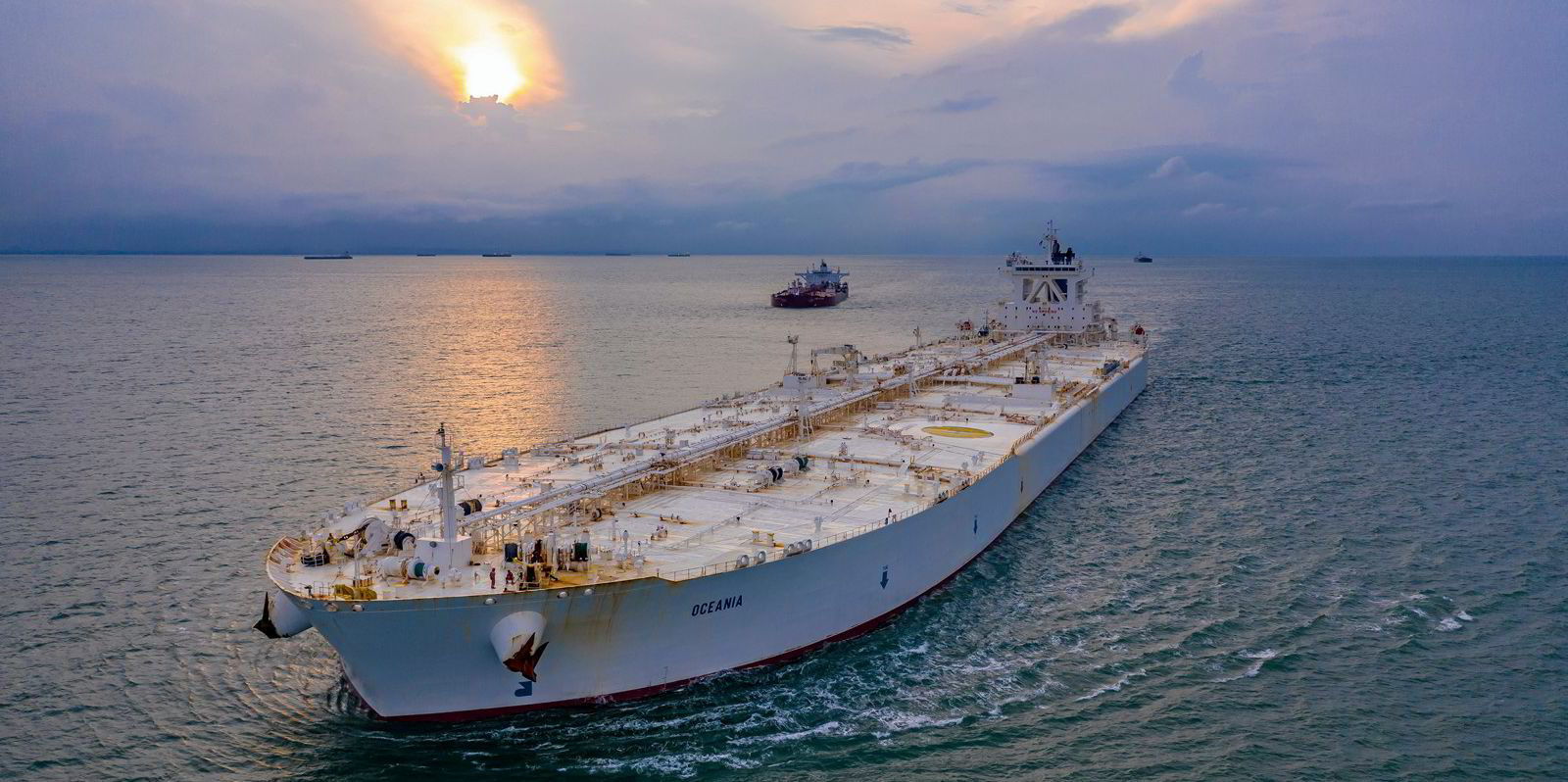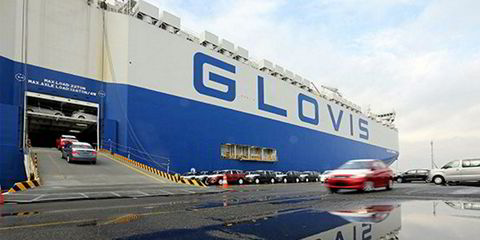The Spanish government has fined the owners of a Vietnamese tanker €120,000 ($129,000) for an unauthorised ship-to-ship oil transfer that was at the centre of a Russian sanctions probe.
The country’s transport ministry said that it had already collected the fine after the ship’s owner was told to deposit the money as a guarantee before the tanker was allowed to leave the northern Spanish port of Ferrol in February.
The ministry said it had now completed its investigation into the ship-to-ship transfer off the coast of the Spanish exclave of Ceuta and found that the vessel had failed to inform the country’s maritime administration about the operation.
Under the International Convention for the Prevention of Pollution from Ships (Marpol), tanker operators should inform a state no less than 48 hours of a planned STS in its territorial waters or EEZ, which stretches 200 nautical miles (370kms) from the coast.
“The prior communication of these STS operations is intended to avoid any risk that may threaten the marine environment since an accidental or deliberate discharge of hydrocarbons into the sea is a considerable source of contamination,” the ministry said in a statement.
The detention at Ferrol in February was just days after the Elephant transferred its cargo of Turkish-origin vacuum gasoil to a Maersk Product Tanker vessel, the 51,600-dwt Maersk Magellan (built 2010).
The Elephant had earlier received the oil from another tanker that had flown the Russian flag until 1 July last year.
The Maersk Magellan was subsequently stopped from unloading at Tarragona, Spain, in a move linked to a European Union ban on “orchestrated” ship-to-ship transfers to get around a prohibition on Russian-flag vessels calling at its ports.
The Spanish authorities said that trying to land a cargo in the EU that had once been on board a tanker that flew the Russian flag after the invasion of Ukraine was a breach of sanctions.
Port state inspection
Spain said the STS infringement was detected during the port state inspection of Elephant at Ferrol. Documents on the ship proved that an STS had taken place, it said.

The ship was allowed to leave Ferrol on 21 February after the guarantee was paid and a Spanish address was given while the disciplinary process continued.
“The shipping company has assumed the penalty and has already paid it… waiving the right to file any type of appeal through administrative channels,” the ministry said.
The ship is owned by Hung Phat Maritime Trading, based in Ho Chi Minh City, Vietnam, according to Equasis. The company has been approached for comment.
The Elephant has since returned to the Russian trade and loaded a shipment of Urals crude from the Russian port of Ust-Luga that was delivered to China earlier this month, according to Kpler ship and cargo tracking data.
Ship-to-ship transfers off Ceuta in the Alboran Sea increased sharply after the EU banned the import of Russian crude from December and oil products after February.
Sanctions busting
Analysts say one reason for the STS transfers has been to hide the origin of oil. Aframaxes that loaded at Russian ports have also shuttled oil to larger VLCCs to cut freight costs for the long journey to Asian markets brought about by the EU oil embargo.
A group of states, including European countries Spain and Denmark, have called for tighter regulation of STS activities because of concerns over sanctions busting and fears of spills during transfers involving elderly tankers linked to Russia’s ‘shadow fleet’ of vessels.
They want to avoid the situation of the 96,700-dwt Pablo (built 1997), which exploded in Malaysian waters earlier this month.
The ship has been repeatedly stripped of its flag following claims of involvement in trading Iranian crude and questions remain over its insurance status.






